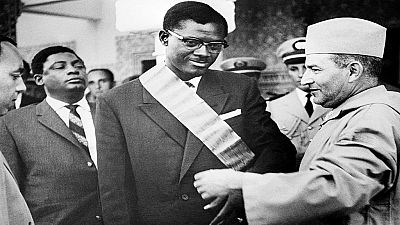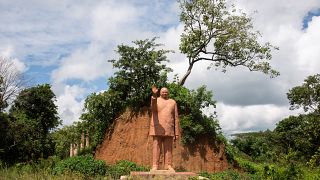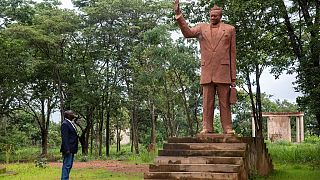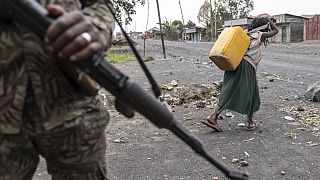Democratic Republic Of Congo
The remains of DR Congo’s former Prime Minister Patrice Emery Lumumba will be repatriated from Belgium, President Félix Tshisekedi has announced.
“In June 2021, on the sidelines of the celebration of the 61st anniversary of our independence, the homeland will show its gratitude to Prime Minister Patrice Emery Lumumba, one of the national heroes whose relics will be repatriated and to whom we will give finally a burial worthy of his sacrifice for the party,” the President said.
Lumumba was an enduring national heroe and icon of those who demand that former colonial powers face up to their history.
Lumumba, a leading member of the independence movement, entered the history books on June 30, 1960, the day that the Republic of Congo, as it then was, formally broke away from Belgian colonial rule.
In the presence of Belgium's King Baudouin, Lumumba -- the 34-year-old prime minister of then president Joseph Kasavubu -- launched into a coruscating speech, accusing the former colonial masters of racist maltreatment and forcing "humiliating slavery" on the Congolese people.
"We experienced the slurs, the insults, the beatings that we had to undergo morning, noon and evening, because we were negroes," he proclaimed.
It was a withering response to King Baudouin whose speech shortly before had saluted the work of his royal ancestor Leopold II, insisting that he was not a "conqueror" but had come on a "civilising mission".
- Rise and fall -
The speech in June 1960 marked the brief high point of Lumumba's meteoric journey, which ended just six months later on January 17, 1961.
Toppled from power, humiliated and tortured, Lumumba was executed by firing squad in a savannah 50 kilometres from Elisabethville (the current Lubumbashi) by Katangan separatists and Belgian mercenaries. He was just 35.
Six months after independence day, the Congo was in crisis. Mutinies and uprisings, the military return of the Belgians and UN interference had stoked a furnace of chaos.
Overthrown by army colonel Joseph Mobutu's "peaceful revolution" in September 1960, but still working to put a government together, Lumumba had become a walking target.
His nationalism and his appeals to the Soviet Union in the middle of the cold war had turned the Belgians and the United States, who feared losing control of the Congolese cobalt, against him.
"In no time Lumumba became a martyr of decolonisation, a hero for all the oppressed of the Earth, a saint of godless communism", says David Van Reybrouck in his book "Congo, a history".
"He owed this status more to the horrible end of his life than to his political successes. He was in power for barely two and a half months."
Belgium recognised its "moral responsibility" in the assassination of Lumumba, following a parliamentary commission of inquiry in 2001.
The Belgian Parliament is planning a new commission on all aspects of the colonisation of the Congo, Rwanda and Burundi.













Go to video
Joseph Kabila’s return: Political comeback or threat to national unity?
Go to video
DRC: Goma Christians celebrate Easter under rebel rule
Go to video
Congo suspends Kabila's political party over rebel 'ties'
Go to video
Goma reacts to return of Kabila from exile
01:09
U.S. calls on Rwanda to withdraw troops from eastern DRC and end support for M23 rebels
Go to video
U.S. charges Americans convicted of coup attempt in Congo